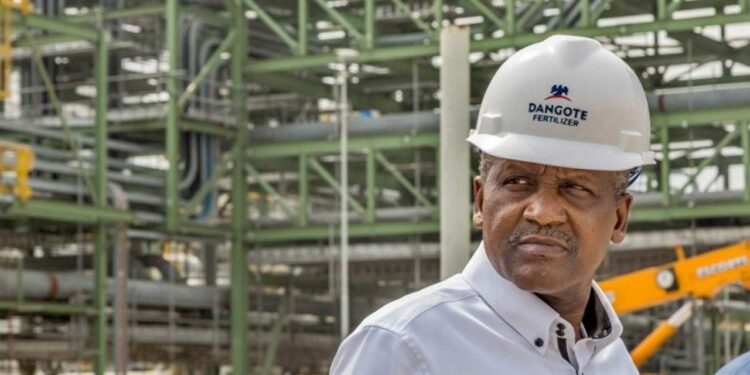Petroleum marketers are expressing concerns about potential price hikes as Dangote Petrochemical Refinery prepares to introduce Premium Motor Spirit (PMS) into the local market within the next two to three weeks. This follows revelations that the refinery has been importing crude oil from the United States and other countries, a more expensive alternative after failing to secure local feedstock from international oil companies.
The chairman of the Dangote Group, Aliko Dangote, had earlier indicated that the refinery would commence PMS sales by mid-July, raising hopes of reduced fuel prices amidst recent increases following the removal of subsidies. However, fears have surfaced among stakeholders that the refinery’s reliance on costly imported crude may undermine expectations of cheaper PMS.
In an interview with The PUNCH, Hammed Fashola, National Vice President of the Independent Petroleum Marketers Association of Nigeria (IPMAN), voiced concerns about the potential impact of import costs on Dangote petrol prices. He underscored the critical need for the Federal Government to facilitate local crude supply to the refinery, suggesting this as a solution to ensure affordable and available fuel for Nigerians.
Fashola urged Dangote not to exploit the situation by monopolizing the market and instead advocated for transparency in pricing. He emphasized the importance of fair competition, stating that if Dangote sets reasonable prices, it would discourage imports by other marketers who might otherwise undercut local production costs.
Addressing speculation about pricing, Fashola predicted a potential reduction in the price gap between major and independent marketers, contingent upon local crude availability and Dangote’s pricing strategy. He also urged Dangote to finalize partnership discussions with IPMAN to streamline distribution and pricing agreements.
Meanwhile, an official from the Dangote refinery acknowledged challenges in sourcing local crude due to alleged interference and pricing discrepancies imposed by international oil companies (IOCs). The official highlighted that such obstacles necessitate importing crude at higher costs, impacting production expenses and potentially influencing retail prices.
As Dangote prepares to launch PMS sales, stakeholders await clarity on pricing and distribution strategies. The Depot and Petroleum Products Marketers Association of Nigeria (DAPPMAN) emphasized that the eventual price of Dangote petrol would depend on the refinery’s crude procurement methods and urged for patience until specific pricing details are released.
In the face of these developments, concerns about market dynamics, pricing strategies, and the role of government intervention persist as Nigeria anticipates the debut of Dangote refinery’s PMS in the coming weeks.
























